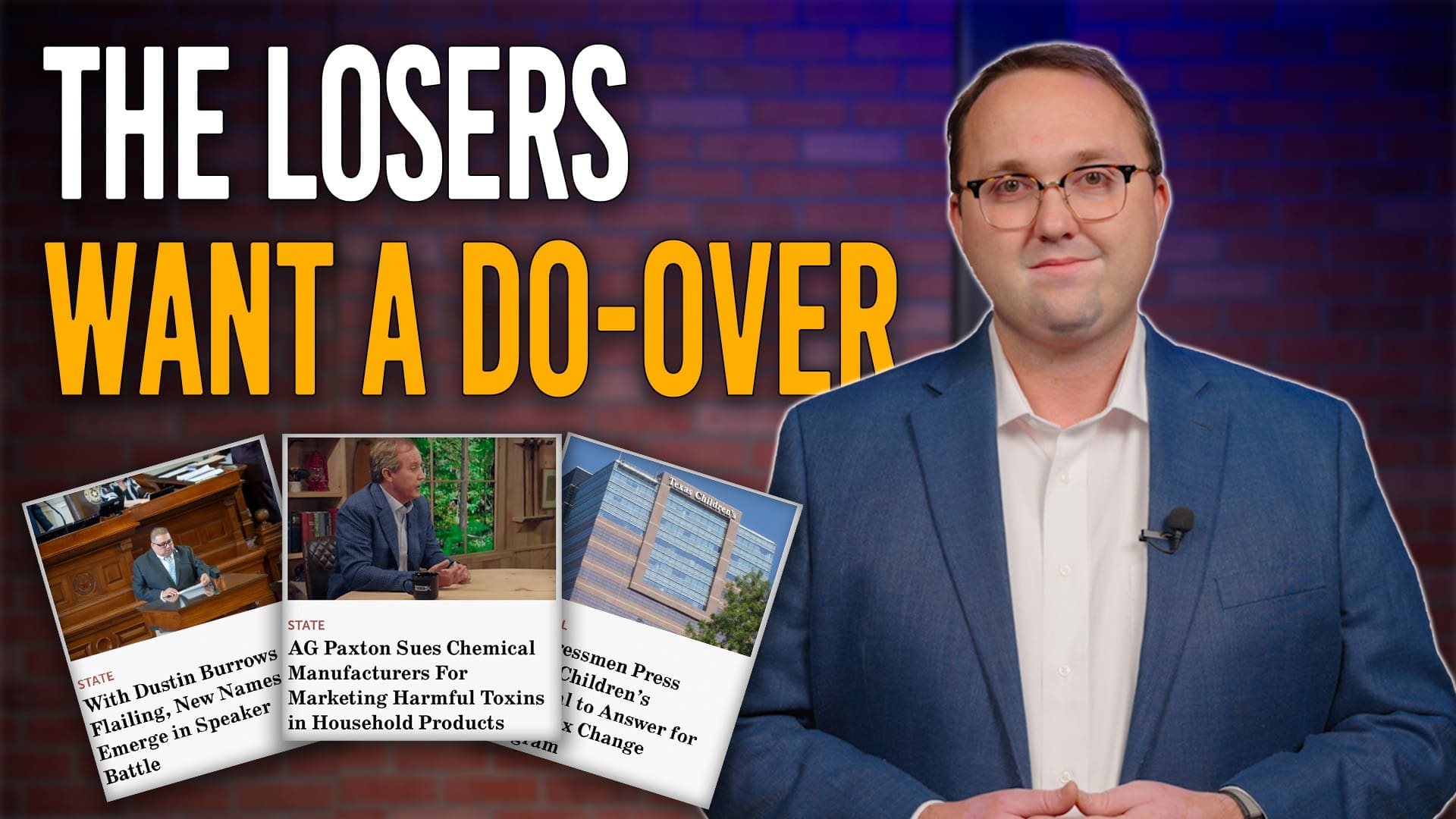Making its way around the state today is news about a new poll purporting to show Texans prefering slot machines as a means to bridge the projected budget shortfall. It’s a false choice, because the pollsters — apparently paid for by the gaming industry — only asked registered voters to choose between slots or higher taxes. That’s not exactly the real choice.
According to news reports, 57% of participants said they prefered slots to taxes.
In reality, there is a third option: cutting spending. That choice wasn’t given to the voters polled, thereby creating a false sense of urgency for an issue (expanding gaming in Texas) that has only tepid support — and even less in the Legislature.
Frankly, I don’t care how people waste their money. Very little difference to me if someone chooses to play the ponies or buy DVDs. It does, though, make a lot of difference in whether we understand the situation, and the pros and cons of the solutions.
First, the budget projection is only a projection. It is based on the assumption that lawmakers will spend what they spent last time, plus a good bit more, and then projecting how the economy will look in 2013. That’s a whole lot of assuming.
But the state’s budget forecast is for an $11 billion to $18 billion “shortfall” in the next biennium.
Second, the state’s elected leadership have all said the spending must be controlled. Period. The need for new revenue sources diminishes if lawmakers adopt a budget that doesn’t spend a lot.
Third, we’ve been down this path before. Back in the early ’90s, Gov. Ann Richards sold Texans on the Lottery with the claim it would take care of school finances. What a joke! In the ten years between 1997 and 2007, net profit from the Texas Lottery declined by 32 percent in real terms (adjusted for inflation).
In 1997, the Texas Lottery netted a $1.6 billion inflation-adjusted profit. This declined to $1 billion by 2007.The Lottery barely covers the cost of the lottery.
Further, the poll doesn’t ask how many of those folks will engage in enough slot-machine activity to cover the budget shortfall. I suspect not many. In polling, people always “prefer” that government generate revenues from activities in which they do not engage. Non-smokers always prefer higher taxes on smoking; smokers, not so much. It’s human nature for people to be excited about government getting money from someone else’s wallet.
Basing the budget on revenues schemes, like lotteries and slots, is risky business. Proponents claim billions of dollars are spent by Texans on gambling in Nevada and Louisiana. Maybe no one has bothered to check but those states are in worse shape than Texas.
According to the Center on Budget and Policy Priorities, Texas’ FY2010 budget gap is 9.5 percent of the general fund budget. By comparison, Nevada, which relies relatively heavily on revenues associated with gambling, has a budget gap equivalent to 50.3 percent of its general fund budget.
Similarly, states bordering Texas that have legalized casino gambling each have budget gaps higher than Texas:
– Louisiana has a 24.0 percent gap.
– New Mexico has an 18.1 percent gap.
– Oklahoma has a 28.7 percent budget gap.
According to a March 2010 report by the Bureau of Labor Statistics, the unemployment rates in New Jersey, Nevada, and Michigan, each of which has commercial casino gambling, are respectively 14.1 percent in Michigan (the highest rate in the nation), 13.4 percent in Nevada (the second highest rate in the nation), and 9.8 percent in New Jersey. The advocates who cite the billions leave it at that. The fact is that those billions spent really only means some millions to those state’s coffers.
Additionally, there is a specific allure to gambling at the strip in Vegas that just won’t be replicated by playing slot machines next to a 75-year-old smoker at a racetrack in Manor. The point is that for people who travel to gamble, the travel is part of the fun.
Finally, there is the very real cost associated with an expanded footprint of gaming. There are new regulatory agents to be hired, and bureaucracies to be created. There are additional law enforcement costs and very real additional costs to social welfare programs that exist in every state with expanded gaming options.
One may not like it, and might wish it to be otherwise, but gambling money isn’t free cash to the state.
And it certainly won’t cure the budget problem.
The only cure, the cure not mentioned in the gambling industry poll, is a little old fashioned fiscal responsibility. The projected budget shortfall can only be covered by controlling spending.




